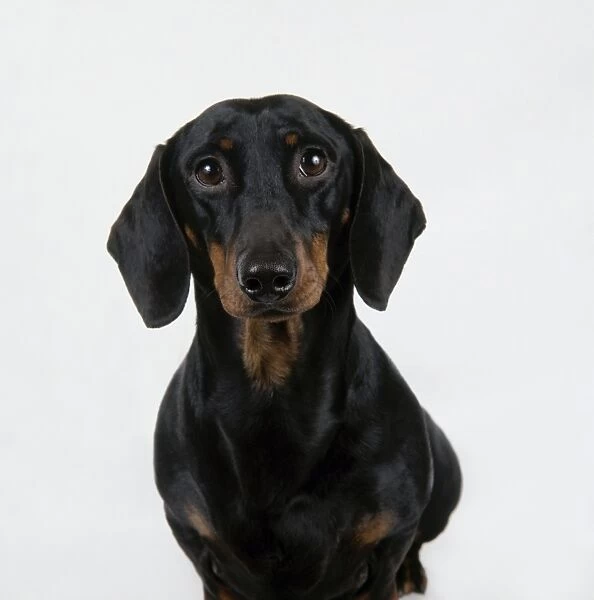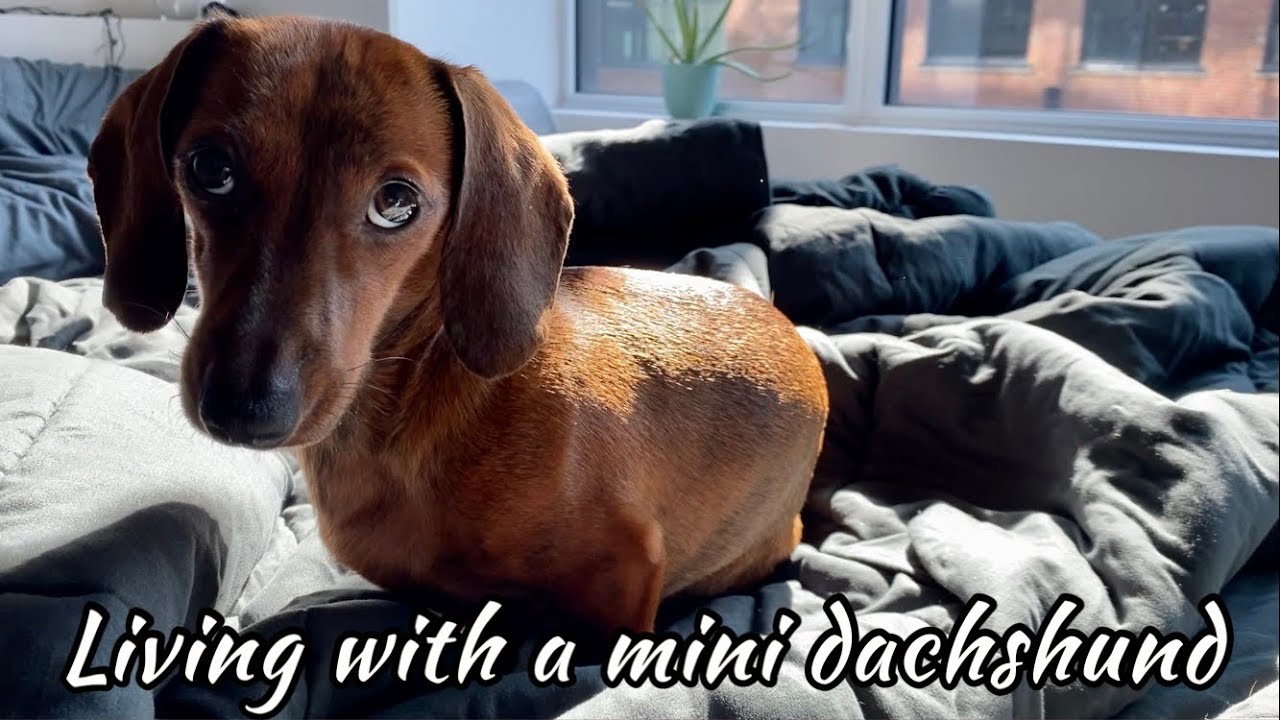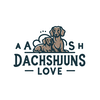The Miniature Dachshund, also known as the sausage dog or wiener dog, has garnered a loyal following around the world for its unique appearance and charming personality. From their origins as skilled hunters to their current role as beloved family pets, these small canines have captured the hearts of many. In this comprehensive guide, we will explore everything you need to know about Miniature Dachshunds, from their history and characteristics to their care and suitability as family pets.
Miniature Dachshund Personality and Temperament

Miniature Dachshunds are known for their strong personalities and unwavering loyalty. These small dogs may be low to the ground, but they make up for it with their spirited nature and boundless energy. They are intelligent, curious, and playful, always eager to explore their surroundings and engage in activities with their owners.
One of the most distinctive traits of Miniature Dachshunds is their independent streak. Bred to hunt on their own, these dogs are used to making decisions and being in control. While this can make them challenging to train at times, it also adds to their endearing charm and makes them great companions for individuals who appreciate a dog with a mind of its own.
Despite their independent nature, Miniature Dachshunds thrive on human companionship and form strong bonds with their owners. They are affectionate and loving, always seeking attention and snuggles from their favorite people. This devotion can sometimes lead to separation anxiety if left alone for extended periods, so it’s essential to provide them with plenty of mental and physical stimulation.
Fearlessness and Prey Drive
As descendants of badger hunters, Miniature Dachshunds possess a fearless and determined spirit. They are not afraid to stand up to larger animals, and their strong prey drive makes them excellent hunters. However, this can also be a potential issue when interacting with smaller pets, as they may view them as prey and chase after them.
To prevent any mishaps, it’s crucial to supervise interactions between Miniature Dachshunds and other animals, especially smaller ones. Proper training and socialization from an early age can also help minimize any potential aggression towards other pets.
Vocalization and Barking
Like many small breeds, Miniature Dachshunds tend to be vocal and may bark at unfamiliar people or noises. This trait makes them good watchdogs, but it may also lead to excessive barking if not properly trained. To prevent this, it’s essential to teach your dachshund when it is appropriate to bark and when to remain quiet.
Caring for Your Miniature Dachshund: From Diet to Exercise

Miniature Dachshunds may have a small stature, but they require a well-balanced diet and regular exercise to maintain their health and energy levels. As with all dog breeds, it’s vital to consult with a veterinarian to determine the best diet for your dachshund based on its age, size, and activity level.
Diet and Nutrition
A high-quality, protein-rich diet is essential for Miniature Dachshunds as they need plenty of energy to fuel their active lifestyle. It’s recommended to feed them two to three small meals a day to prevent bloating, which is a common health issue in deep-chested breeds like Dachshunds.
Avoid overfeeding your dachshund, as excess weight can put strain on their long backs and increase the risk of spinal problems. It’s also important to monitor their food intake and adjust accordingly as they age and become less active.
Exercise and Mental Stimulation
Despite their small size, Miniature Dachshunds are quite active and require daily exercise to stay happy and healthy. This can include brisk walks, playtime in the yard, or even agility training. It’s important to keep them on a leash during walks, as their strong prey drive may cause them to chase after small animals.
In addition to physical exercise, mental stimulation is also crucial for Miniature Dachshunds. These intelligent dogs need activities that challenge their minds, such as puzzle toys, interactive games, and training sessions. Boredom can lead to destructive behavior, so it’s essential to keep them mentally stimulated throughout the day.
Health Considerations for Miniature Dachshunds

As with all dog breeds, Miniature Dachshunds are prone to certain health issues that owners should be aware of. While not all dachshunds will experience these problems, it’s essential to recognize the signs and symptoms and seek veterinary care if needed.
Back Problems
Due to their long bodies and short legs, Miniature Dachshunds are susceptible to spinal issues such as intervertebral disc disease (IVDD). This condition occurs when the discs between the vertebrae bulge or rupture, causing pain and mobility issues. IVDD can be caused by excessive jumping, rough play, or genetics.
To prevent back problems, it’s important to monitor your dachshund’s weight, avoid activities that put strain on their back, and provide them with a comfortable, supportive bed. Regular check-ups with a veterinarian can also help detect any potential spinal issues early on.
Obesity
As mentioned earlier, excess weight can be detrimental to Miniature Dachshunds’ health due to their long backs. Obesity can also increase the risk of other health conditions, including heart disease, diabetes, and joint problems. Maintaining a healthy diet, portion control, and regular exercise are crucial for preventing obesity in dachshunds.
Eye and Ear Problems
Miniature Dachshunds are also prone to eye and ear issues, including cataracts, glaucoma, and ear infections. It’s essential to regularly clean their ears and seek veterinary care if you notice any discharge or signs of discomfort. Regular eye exams can also help detect any potential problems early on.
Training and Socialization for Miniature Dachshunds

Proper training and socialization are crucial for all dog breeds, but especially for independent and spirited ones like Miniature Dachshunds. These dogs need to learn obedience and commands from an early age to prevent destructive behavior and ensure they are well-behaved around other people and animals.
Basic Obedience Training
Miniature Dachshunds may be stubborn at times, but with patience and positive reinforcement techniques, they can learn basic obedience commands such as sit, stay, and come. Early training is essential to establish yourself as the pack leader and maintain control over your dachshund.
Positive reinforcement techniques involve rewarding desirable behaviors with treats or praise, while avoiding punishment or negative reinforcement. This approach is especially effective with dachshunds, as they respond well to food-based rewards.
Socialization with People and Other Animals
As with any breed, proper socialization from a young age is crucial for Miniature Dachshunds to develop into well-adjusted and confident dogs. Introduce your dachshund to a variety of people, environments, and animals to help them feel comfortable and confident in different situations.
It’s also important to expose them to different sounds, objects, and experiences, so they are not easily frightened or overwhelmed. Proper socialization can help prevent shyness, fearfulness, and aggression towards other people and animals.
Miniature Dachshunds as Family Pets: Finding the Right Fit

With their adorable looks and lovable personalities, it’s no surprise that Miniature Dachshunds make great family pets. However, they may not be the best fit for every household. These dogs have specific needs and require dedicated owners who are willing to provide them with the care and attention they deserve.
Ideal Living Situation
Miniature Dachshunds make great apartment dogs due to their small size, but they also thrive in houses with fenced yards where they can play and explore freely. They are adaptable to various living situations, as long as they receive enough exercise and mental stimulation.
This breed is not recommended for households with small children, as their sensitive backs can be easily injured by rough handling. However, they do well with older, considerate children who understand how to interact with small dogs.
Finding a Reputable Breeder or Rescue Organization
If you’re considering adding a Miniature Dachshund to your family, it’s crucial to research and find a reputable breeder or rescue organization. A responsible breeder will prioritize the health and well-being of their dogs, while a reputable rescue organization will ensure that the dachshunds in their care are healthy and suitable for adoption.
Avoid purchasing dachshunds from puppy mills or pet stores, as these dogs are often bred under inhumane conditions and may have underlying health issues. Responsible breeders and rescue organizations will also provide you with valuable information and resources to help you care for your dachshund properly.
Conclusion
In summary, Miniature Dachshunds are energetic, loving, and loyal companions that have captured the hearts of dog lovers worldwide. Their unique appearance and spirited personalities make them stand out from other dog breeds, but they also come with specific needs and considerations that potential owners should be aware of.
From their origins as skilled hunters to their current role as beloved family pets, Miniature Dachshunds have a rich history and a bright future as one of the most popular dog breeds. With proper care, training, and socialization, these lovable sausage dogs can bring joy and companionship to any household.
